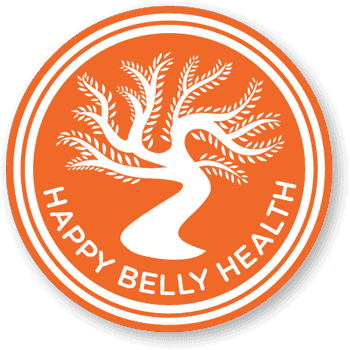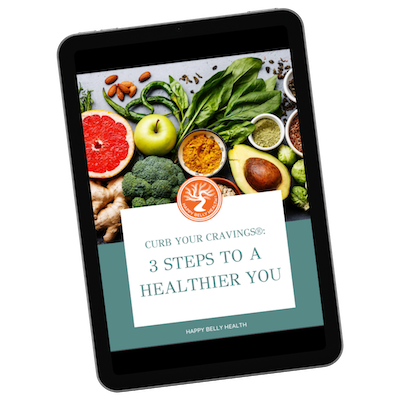
In our modern world, we are unfortunately surrounded by hazardous substances that can have negative health effects, even in tiny doses. Chemicals eaten in foods or drinks, applied to your skin or inhaled from the air are indeed absorbed into your systemic body, and may cause harm to your cells and organ systems. They can cause inflammation and increase the body’s production of free radicals, thus increasing your likelihood of developing chronic health problems from Type 2 diabetes, to autoimmune diseases, to cancer, to neurotoxicity and dementia. They can also mimic the body’s hormones and cause major imbalances . The science behind the major impact of toxins on our health is solid at this point; what is lacking is simply our awareness and daily action to avoid toxins.
The good news is that the body has innate detoxification processes which, if well supported, can well protect the body from occasional, mild exposure. Toxin avoidance, however, is a key part of ensuring that our detoxification capability is sufficient to help us stay well. When we have toxic overload, our bodies store toxins that cannot be excreted, which then contribute to ongoing disease risk. Here are some everyday lifestyle habit choices that can have a major impact on long-term health.
How to Avoid Toxins for Better Health
Food
- Shift your food purchases and consumption to organic wherever possible, especially prioritizing animal products. It is most important to use organic dairy products (milk, cheese, yogurt, ice cream, etc.). Free-range meats and eggs are desirable to purchase as organic. Minimize the use of large fish (swordfish, tuna, etc.) as they are higher in mercury and farm-raised fish which, unless you see a certification of clean feedstock quality, tends to be fed contaminated with chemicals.
- Always purchase organic strawberries and apples, and refer to the Environmental Working Group web site to stay current about which fruits and veggies are most important to eat organic given current agricultural practices (www.EWG.org ). The annual Clean 15 and Dirty Dozens lists can help to prioritize organic purchases when they must be limited.
- Try to avoid canned foods as much as possible due to possible leaching of BPA into the food from the can lining. BPA is a known endocrine disruptor that has estrogenic effects in the body. Where you do choose canned foods regularly, focus on foods that can be rinsed (e.g. beans). Eden Foods is one of very few (even among organic canned food producers) committed to being fully BPA-free.
- Avoid all foods with artificial colors and chemical preservatives.
Products for Wellness
- Purchase the most natural cleaning and other household products you can find. Manufacturers are not required to disclose all ingredients on the label, so you will need to do a little research to investigate your options. This is a good place to start: https://www.ewg.org/guides/cleaners .
- Avoid spraying All pesticides or herbicides in your home or property.
- For hair and other personal hygiene products (including shampoo and colors) look for products without alcohol, sodium lauryl sulfate, triclosan, paraben, phthalates, or other petrochemicals. Check to see if there is an environmentally-sensitive hair or nail salon in your area. Avoid using All hair sprays.
- It’s hard to avoid polycarbonate plastic because it’s ubiquitous. Unfortunately, it also contains BPA. Examples are CDs, the faces of laptops, many toy parts, kitchen utensils, water cooler carboys, and eyeglass lenses; it’s often identified as #7 in the recycling symbol on the product. Try to minimize exposure, especially against skin when warm and/or wet.
- Avoid perfumes or other skin or hair care products that use synthetic fragrances (the word “fragrance” or “parfum” often indicates the presence of phthalates).
Skin Care and Makeup
- We need to remember that the skin is essentially a big mouth that is indeed semi-permeable and able to absorb chemicals and personal hygiene and beauty products. Manufacturers are typically not required to disclose all ingredients on product labels, and hidden toxicity is common.
- Use low-toxin make-up and skin creams (avoid all products with phthalates, parabens, propylene glycol, alcohols, artificial colors, and fragrances). EWG maintains a large database of products with rated toxicity details which can be a helpful place to explore: https://www.ewg.org/skindeep/.
- Consider using antioxidant creams for skin: low solvent products with CoQ10, Vitamin C, & DMAE.
Antiperspirants and Deodorant
- Avoid aluminum-containing antiperspirants (and over-the-counter antacid drugs too). Since virtually all national brand antiperspirants in the US contain aluminum, it is advisable to minimize or discontinue use. Choose a natural deodorant instead.
Water
- Water can have many toxins (from well or municipal sources) and thus regular consumption of unfiltered water can significantly contribute to the toxic load of your body. Have your well water tested for a variety of metals. Municipal water is often both chlorinated and fluoridated and contains notable levels of dissolved chemicals and pharmaceutical drug residues.
- Water quality will vary from city to city, but in general it is better to filter tap water with a multi- stage gravity (e.g. Berkey) or reverse osmosis filter. You can do this at an individual source (e.g. sink) or whole house.
- Avoid regularly using bottled water in soft plastic containers, not only for the environmental waste, but for the risk of leached chemical and microplastic contamination. Don’t drink water from plastic water bottles that have been in a hot car or stored in a hot warehouse.
- Choose glass or ceramic or stainless steel water bottles for carrying home water with you.
- Have approximately 6-8 glasses of pure, clean water or healthy liquids each day to help ensure hydration and easier removal of toxins via the kidneys.
- Filter shower water in order to limit your exposure to chlorinated hydrocarbons. During a hot shower, we can both inhale and absorb toxins more readily.
Plastics
- Plastics are a very broad category of chemicals which are particularly toxic as endocrine disruptors.
- In particular, avoid all plastic bottles and containers with the numbers 3, 6 and 7 on the bottom. These are most likely to leach plastics into the food, juice or water that they contain.
- Buy juices and water in glass containers when possible.
- Avoid all PVCs.
- Do not microwave in plastic containers. Use glass instead and cover with a ceramic plate or paper towel.
- Minimize washing plastic containers in the dishwasher under high heat.
- Minimize the use of cling wraps; use paper wraps instead.
Dental Care
- Do not get mercury amalgam fillings.
- Get second opinions on root canals.
- Avoid ever having 2 different metals in your mouth.
- Pick a dentist who is aware of healthy choices for the mouth—perhaps a more holistic or biologically oriented dentist who does not place new silver amalgam (i.e. mercury-loaded) fillings.
- Avoid all toothpastes and dental treatments involving fluoride.
Home
- Air out your home fully at least a couple times a week, especially in the winter when toxins outgassing from home products build up in stagnant air.
- Use only green and low VOC products in a remodel or a new home.
- Don’t use pots and pans with Teflon or related non-stick surfaces. Also avoid all aluminum surfaced cookware.
- Avoid furniture with particle board or buy used furniture that has had a chance to outgas already.
- Let a new car off-gas by keeping the windows open as much as possible for the first 3-6 months.
- Use an air filter such as a Hepa filter with a charcoal filter to clean the debris in the air.
- Minimize the amount of regular carpet in your home or use natural flooring (e.g. wood without coatings).
- Avoid using pesticides in your house and garden, especially if you have children and/or pets.
- Always wash new linens and clothing thoroughly, preferably in hot water, before wearing.
- Avoid flame-retardant, anti-stain, and other chemical coatings on textiles (e.g. furniture, textiles, bedding, clothing, carpet that is treated with flame retardants (PBDEs or polybrominated diphenyl ethers) or a stain-proof chemical such as StainMaster (perfluorinated chemicals).
- Consider possible sources (obvious or hidden) of mold in your home, especially if one struggles with chronic histamine-mediated challenges, autoimmune disease, or chronic fatigue.
Home or Office Remodel
- Use a low or no VOC paint and carpet or rug.
- Minimize carpet and choose hardwoods but not laminates (avoid Pergo, for example).
- Take off shoes at the door to decrease likelihood of transmitting chemicals and pesticides indoors.
- Avoid urea formaldehyde in building products.
- Change the filter on your furnace every 3 months, using the best allergy furnace filter you can find.
- Replace older lead or copper plumbing (the latter usually still contains lead solder).
Electromagnetic Fields Affect Your Health and Wellness
- Minimize cell phone use and hold away from head while talking (i.e. use speaker phone mode or a headset as much as possible).
- Turn off the wireless internet router in your home during rest/sleeping hours.
- Minimize your use of portable phones at home and shift to corded phones.
- Take the clock radio away from your head and bed.
- Get the fields measured in a potential new car before you buy it.
- Don’t sleep with your cell phone on you or under your pillow.
If you would like some customized support to delve deeper into your health and nutrition, let’s chat.
© Purpose Inc., The School of Applied Functional MedicineTM




